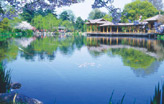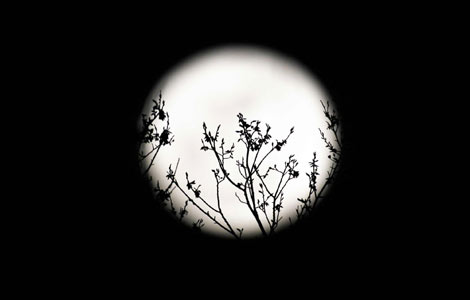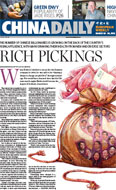L'Oreal builds on its Chinese foundation
Updated: 2011-03-11 10:46
By Shi Yingying (China Daily European Weekly)
|
|
|
China is now L'Oreal's third-largest market after France and the United States. An Xin / For China Daily |
L'Oreal SA of France, the world's largest cosmetics maker, earlier this week posted a 17.6-percent increase in sales in China to more than 1 billion euros last year, establishing the Chinese market as its third largest after France and the United States.
The company says that China now accounts for about 5 percent of the company's global sales. L'Oreal SA currently manages more than 20 different hair care, cosmetics and personal healthcare brands worldwide, including L'Oreal, Lancome and Yue-sai.
Alexis Perakis-Valat, L'Oreal CEO, predicts that the company will gain more than 1 billion new customers globally in the next 10 years. About half of the projected new customers are expected to come from Asia, he said in a press conference in Shanghai.
Underscoring the importance of the Asian markets, the 102-year-old company is building its largest cosmetics factory in Cikarang, Indonesia. L'Oreal expects that 25 percent of the Indonesian factory's output, scheduled for completion in October of this year, will be sold in the domestic market, while the remaining portion will be exported to neighboring markets.
The group's first research center in China, built in Shanghai's Pudong New District six years ago, expanded to 3,200 square meters last year. More than 300 cosmetic and hair products dedicated to the Chinese market were developed there.
L'Oreal "succeeded in opening up new areas for growth and profitability, which are also paving the way for the future", says Lindsay Owen-Jones, L'Oreal's longtime chairman who is stepping down this month.
The new areas for the company in the Chinese market are the nation's third- and fourth-tier cities, such as Dongguan in Guangdong, Luoyang in Henan and Lanzhou in Gansu. Like many foreign vendors in China, L'Oreal has been closely watching the rapidly increasing purchasing power of consumers in these new areas for a while.
Sometime ago, "a shop manager asked me why don't we open a Lancome shop in Yichang (in Hubei), I bet people would be lining up to visit it", says Paolo Gasparrini, president of L'Oreal China.
The question is a valid one: The company bought its first Chinese brand, Mininurse, out of Yichang. So the company started selling Lancome and a few other luxury brands at concession counters in department stores in Yichang early this year.
"We have received really positive feedback about our products from consumers in that city," Gasparrini says.
Another promising segment for L'Oreal is China's growing market for men's cosmetics.
"Men are either using cosmetics or stealing from their wives or girlfriends," says Perakis-Valat, who said sales of men's cosmetics in China is booming.
The men's skincare market in China was estimated to be worth $269.6 million (194 million euros) in 2010, slightly higher than the $227.4 million in North America, according to figures provided by research agency Euromonitor.
The market will also see annual growth of 29 percent between 2009 and 2014, compared to 5.7 percent in North America and 7.9 percent in Europe. Euromonitor figures show L'Oreal with a 32-percent share of the Chinese market in 2009.
"We estimate that the men's cosmetics sector has grown at twice the rate of the total beauty market in China," Perakis-Valat says. "And it's only the beginning."
In a sign of the importance of new frontiers, the company also used Chinese local singers and models, such as Zeng Yike and Zhang Zixuan, to advertise the Maybelline NY's BB Cream, which is the brand's star product in the country.
"From the formula design (of the cream) to the packaging, from the choice of advertiser to the shooting of the advert, all of these were done in China," Perakis-Valat says.
Michelle Huang, a Shanghai-based analyst with Euromonitor, says L'Oreal has done well in localization strategies.
But apart from adopting localized strategies, L'Oreal has also showed enthusiasm in acquiring local brands. Mass-market brand Mininurse and luxury product Yue-Sai are now two of L'Oreal's 19 brand collections that are selling in China. The company began making acquisitions in China just after it became profitable in the country eight years ago. It started with the local brands Mininurse in 2003 and Yue-Sai in early 2004.
"Mininurse can reach the consumers that other brands can't reach," Perakis-Valat says. "We think it's a great asset for us to develop the Chinese market as Chinese consumers love the brand."
Currently, Mininurse is undergoing consolidation pains and L'Oreal has declined to disclose details of Mininurse performance last year.
"We're not ready today to talk about Mininurse. It's not an easy topic, it's challenging," says Gasparrini. "But one thing we're sure of is that we didn't buy Mininurse with the intention of taking it out of the Chinese market."
E-paper

City of Joy
Welcome to the 'world of smiles' where life meanders slowly.
Debate on nuclear power revived
The future is now
Common approach
Specials

Beloved polar bear died
Berlin's beloved polar bear Knut, an international star died Saturday.

Panic buying of salt
Worried Chinese shoppers stripped stores of salt on radiation fears.

'Super moon'
The "Super Moon" arrives at its closest point to the Earth in 2011.

